2025 Awards Finalists
The KiwiNet Awards celebrate heroes in research commercialisation — those individuals and organisations whose best practice approach is changing the innovation landscape in New Zealand. We congratulate the 2025 finalists!
Ara Ake Breakthrough Innovator Finalists
This award recognises an upcoming entrepreneurial researcher who is making outstanding contributions to business innovation or is creating innovative businesses in New Zealand through technology licencing, start-up creation or by providing expertise to support business innovation.
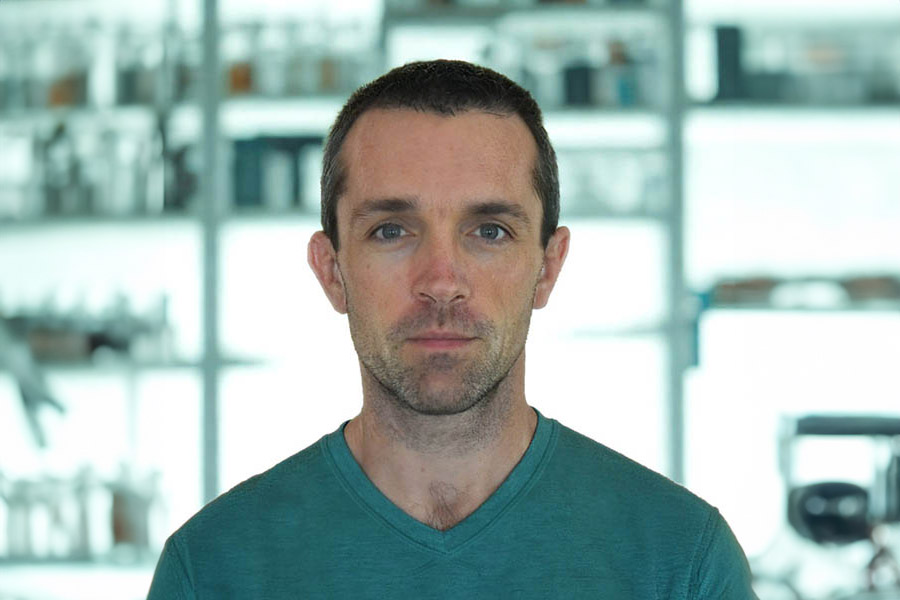 Dr François-Xavier Collard
Dr François-Xavier Collard
Bioeconomy Science Institute
Pioneering biofuel for a greener maritime future
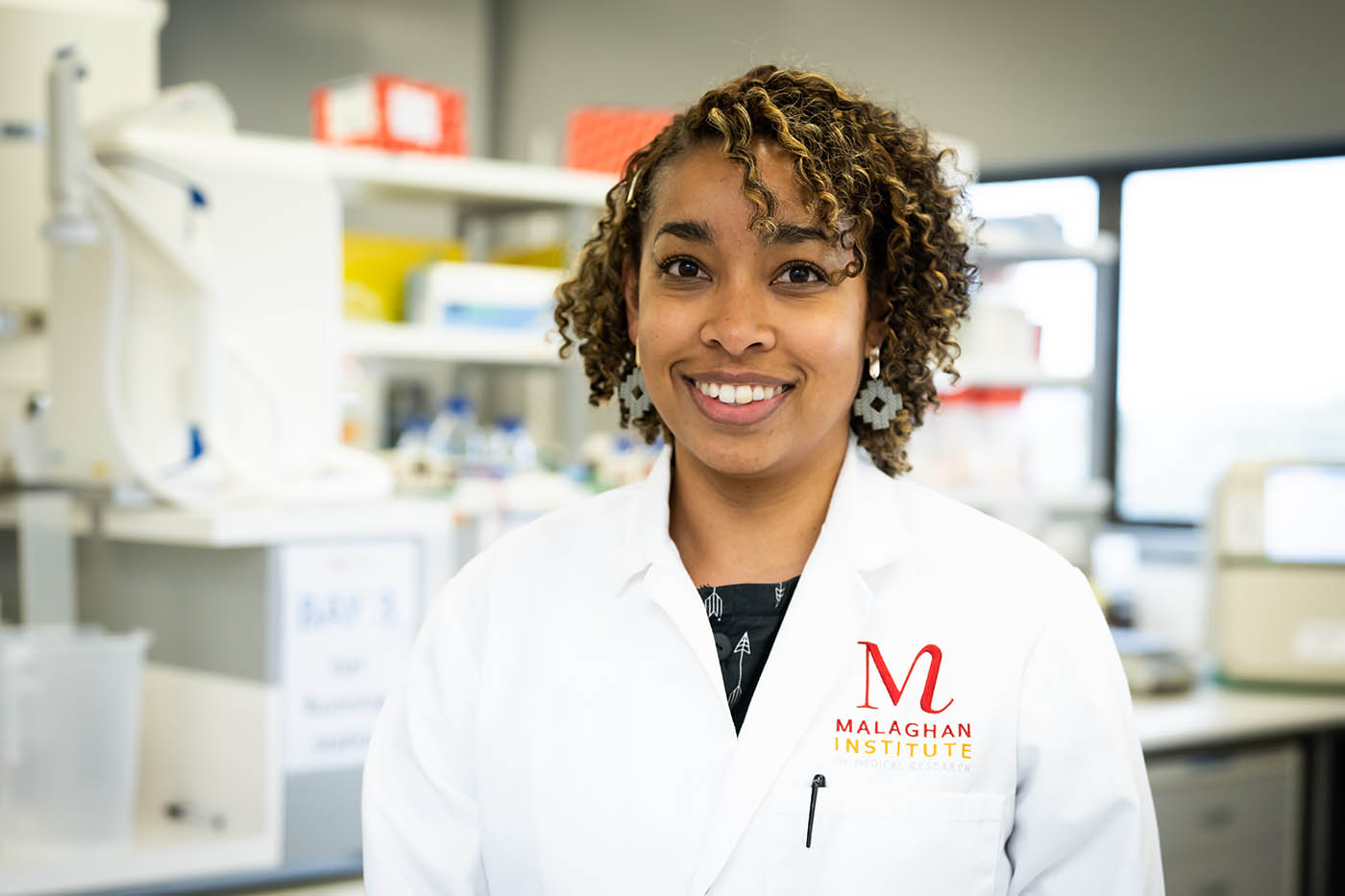 Dr Patricia Rubio-Reyes
Dr Patricia Rubio-Reyes
Malaghan Institute of Medical Research
Improving cell therapy control to fight cancer
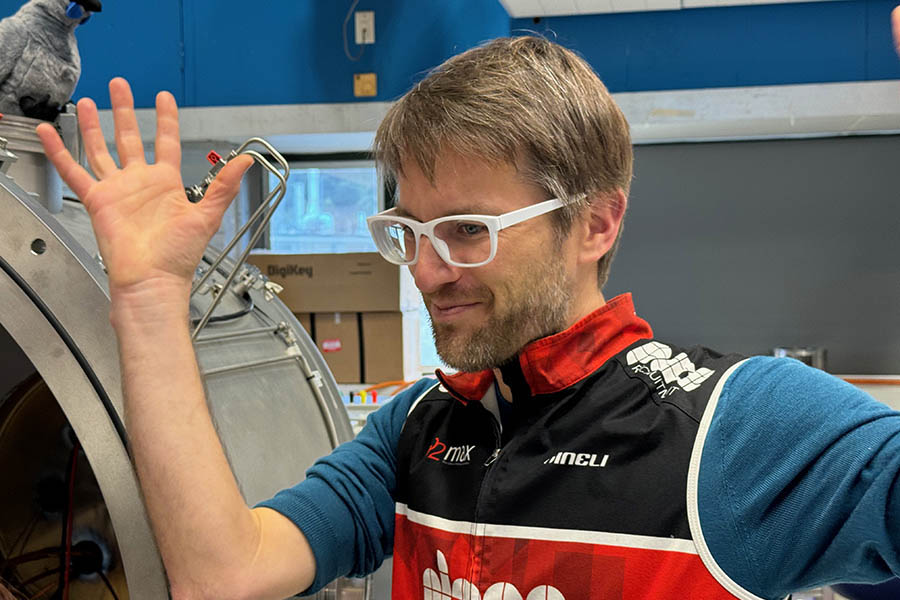 Dr Ben Mallett
Dr Ben Mallett
The MacDiarmid Institute, Wellington UniVentures, Paihau Robinson Research Institute
Propelling New Zealand to the frontiers of deep space
Dr François-Xavier Collard - Bioeconomy Science Institute
Pioneering biofuel for a greener maritime future
Driven by a vision to reduce biofuel costs and accelerate the adoption of clean energy, Dr François-Xavier Collard’s groundbreaking fuel technology is steering the shipping industry towards achieving net-zero CO2 emissions.
François-Xavier Collard is a world-recognised expert in pyrolysis, working for the Bioeconomy Science Institute. Pyrolysis is the heating of an organic material, such as biomass, in the absence of oxygen at high temperatures (above 500 °C for biomass pyrolysis). With fast heating, it produces a high yield of a liquid fuel, known as bio-oil.
He is leading the charge on a novel and scalable system that converts woody biomass into bio-oil. This bio-oil is a sustainable and seamless alternative to fossil-based marine fuel, providing the maritime industry with a cleaner option without requiring engine modifications.
Through this process, François has transformed a complex fundamental research programme into a clear and investible roadmap, positioning it for market readiness well under the original budget and maintaining a highly collaborative approach to seek input from diverse stakeholders across shipping, exports, fuel and investor sectors. François’ work reflects a powerful blend of vision, pragmatism, and teamwork, driving research beyond the lab and into real-world impact.
François' groundbreaking innovation is poised to make a substantial impact on the maritime sector – pioneering sustainable practices and charting a bold course toward a zero-carbon future.
This technology has already generated significant interest from industry stakeholders and investors. Start-up venture Biowave is now raising capital for technology scale-up.


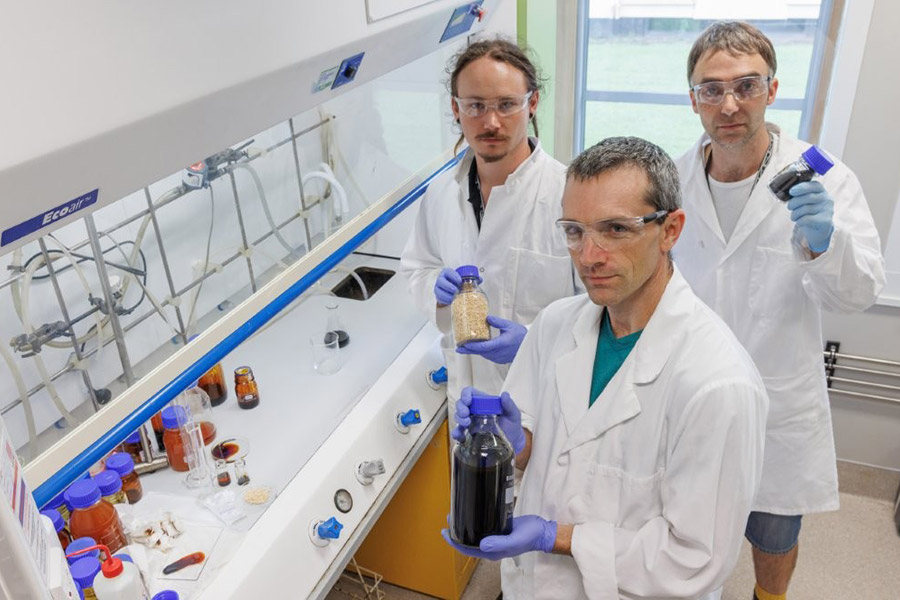
François-Xavier Collard (front) with marine biofuel and research colleagues Tasman van der Woude and Martin Cooke-Willis
Dr Patricia Rubio-Reyes, Malaghan Institute of Medical Research
Improving cell therapy control to fight cancer
With a strong background in immunotherapy and biotechnology, and a desire to create real-world impact, Dr Patricia Rubio-Reyes is now out of the lab and taking her novel protein for cell therapy to the world.
In 2020 Patricia joined the Malaghan Institute’s CAR-T team to support their work in bringing cutting-edge immunotherapies to New Zealanders. Here, Patricia took on the challenge of developing an innovative protein to meet a specific need within the CAR-T programme - and succeeded.
It was soon discovered that this modified natural transmembrane protein offered significant advantages over existing solutions for cell tracking, and had strong commercial potential of its own. Patricia stepped forward to lead its commercialisation, taking ownership of both the technical development and the broader vision.
Over the past 12 months, Patricia has worked tirelessly to build relationships across the global cell therapy ecosystem, secure a patent, refine the business case and guide the invention through the complex pathway toward market readiness.
After gaining additional experience through the KiwiNet Emerging Innovator Programme Patricia headed to the UK, where she is now based, working closely with stakeholders in the cell therapy sector to drive the commercialisation process through non-exclusive licensing opportunities and laying the groundwork for her next adventure.


Dr Ben Mallett – The MacDiarmid Institute, Wellington UniVentures, Paihau Robinson Research Institute
Propelling New Zealand to the frontiers of deep space
Dr Ben Mallett is a senior scientist at Paihau-Robinson Research Institute at Te Herenga Waka—Victoria University of Wellington and co-founder of JxB Space Systems, a new spinout company set to position New Zealand as the home of next-generation spacecraft propulsion.
Since joining Paihau-Robinson in 2021, Ben has played an integral role in the space team’s development of advanced space technologies that require superconducting magnet systems, such as their next-generation spacecraft propulsion system. For the Heki mission to the International Space Station, set for launch later in 2025, he led the development of the flux pump. This superconducting device pumps current into the main superconducting magnet using significantly less power than conventional technology. He also led an international collaboration to develop the critical capability to test the performance of the new propulsion system.
Realising the transformative potential of the propulsion technology requires taking it from the lab and into widespread commercial use. This ambition led Ben to build the business case for JxB. In October 2023, Ben was accepted into a competitive global space accelerator, where he refined JxB’s business model, forged strategic investor and B2B partnerships, and deepened his commercial expertise – all while advancing technical milestones.
JxB aims to unlock a future where it will be economical to routinely travel into deep space, discover our solar system, and utilise space to lessen our impact on Earth. As the US$4 billion/year in-space propulsion market seeks more powerful electric thrusters and responds to crowded low-Earth orbits, JxB will supply the superconducting propulsion system to meet market needs.
Ben’s focus on aligning diverse teams across Paihau-Robinson, Wellington UniVentures and the MacDiarmid Institute has earned him wide respect and is critical to JxB’s success. As a founding member of CHIASMA Wellington, he continues to build a legacy of translating science to impact, driving New Zealand towards the frontiers of deep space.




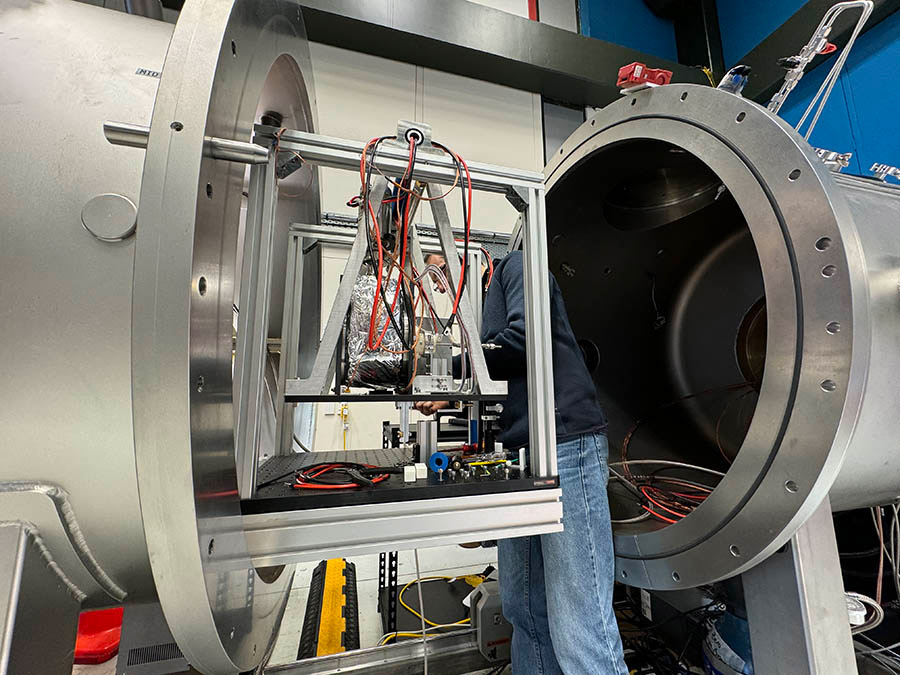
Demonstrator spacecraft propulsion system in the test facility at Paihau-Robinson.
BNZ Researcher Entrepreneur Finalists
This award recognises an entrepreneurial researcher who has made outstanding contributions to business innovation or has created innovative businesses in New Zealand through technology licensing, start-up creation or by providing expertise to support business innovation.
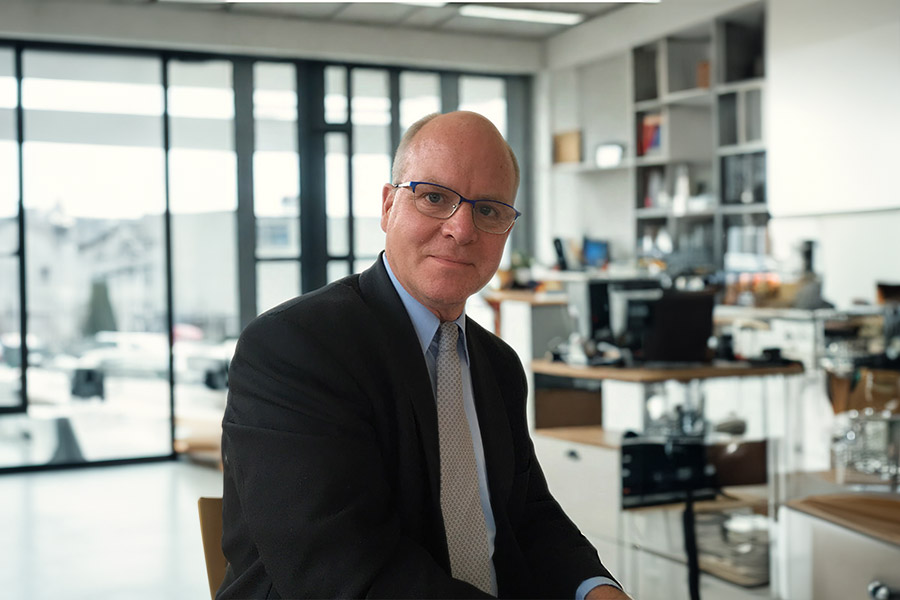 Professor Paul Glue
Professor Paul Glue
University of Otago
Pioneering impact for mental health
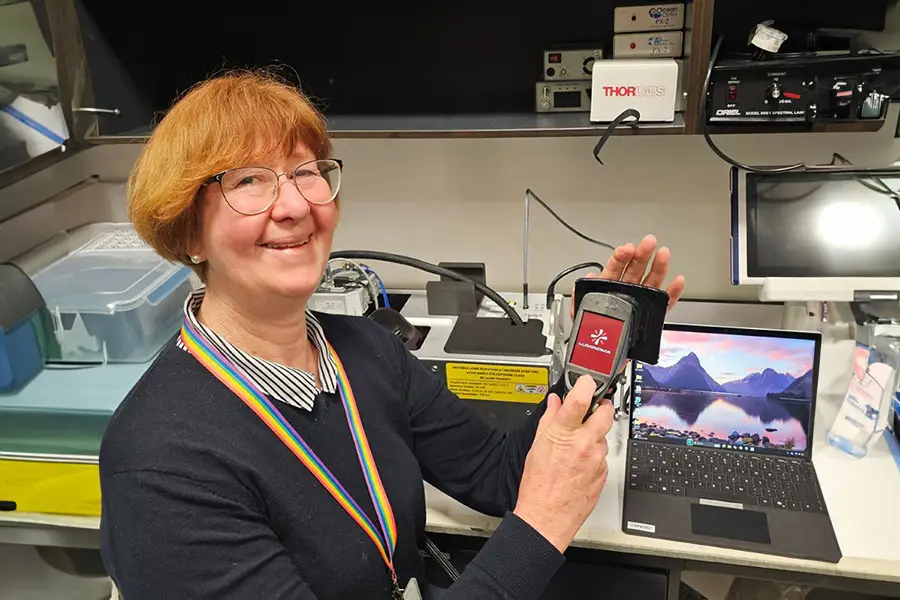 Dr Michel Nieuwoudt
Dr Michel Nieuwoudt
University of Auckland & Luminoma Ltd
Making light work of hard problems
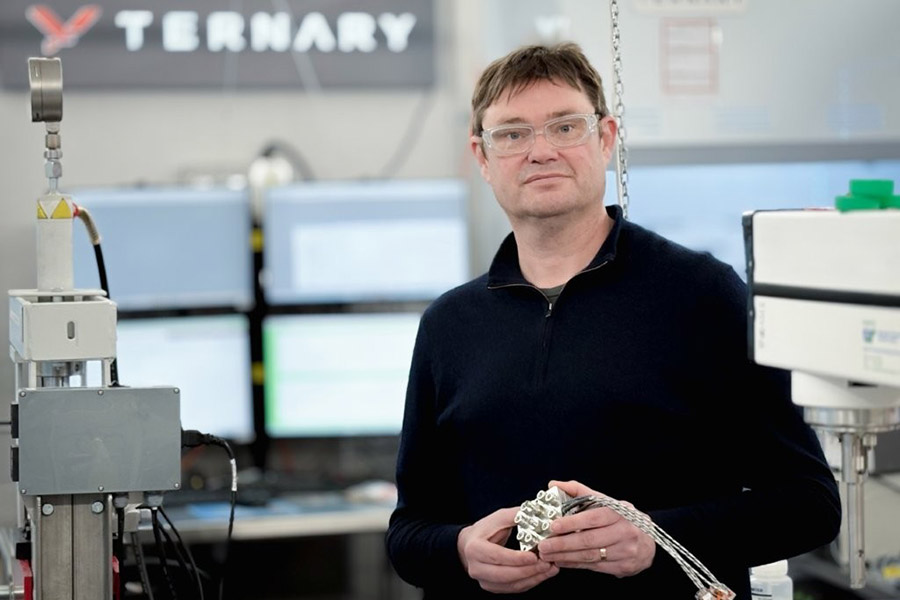 Professor Aaron Marshall
Professor Aaron Marshall
University of Canterbury and MacDiarmid Institute
An inspiring visionary in clean-tech innovation
Professor Paul Glue - University of Otago
Pioneering impact for mental health
With a prolific career in clinical pharmacology and over 13 patents, Professor Paul Glue has dedicated the last 15 years to a breakthrough drug for depression and anxiety that will have far-reaching benefits for patients in New Zealand and beyond.
Professor Paul Glue is a clinical psychiatrist with many accolades to his name – leading clinical trials for Pfizer with seven drugs successfully entering clinical practice and global markets, authoring over 500 publications, and receiving several international research awards.
Now Paul is following his passion by working as a Consultant Psychiatrist and as a researcher in the Psychological Medicine Department at the Dunedin School of Medicine at the University of Otago.
Over the last 15 years he has focussed on use of ketamine for the treatment of depression and anxiety disorders. He made a breakthrough in this space with the discovery that the side effects of ketamine could be dramatically reduced by altering how rapidly ketamine is absorbed into the body.
In collaboration with Douglas Pharmaceuticals, Paul designed the first in-patient studies of a controlled-release ketamine drug. During these trials patients reported that depression and anxiety symptoms improved within 2 days with minimal side effects. He has since led a larger – and equally successful – Phase 2 trial in patients with treatment-resistant depression, carried out in centres in across New Zealand, Australia, Singapore and Taiwan, which received far-reaching media acclaim.
Paul is a highly respected expert in clinical trial design, both for his own projects and in support of colleagues’ translational research, and is a valued collaborator with Douglas Pharmaceuticals, clinicians, and researchers across various fields.
Paul remains at the coal face as Chair of Douglas’ Clinical Advisory Board for this oral ketamine treatment as it aims for approval as a widely available antidepressant with blockbuster expectations.


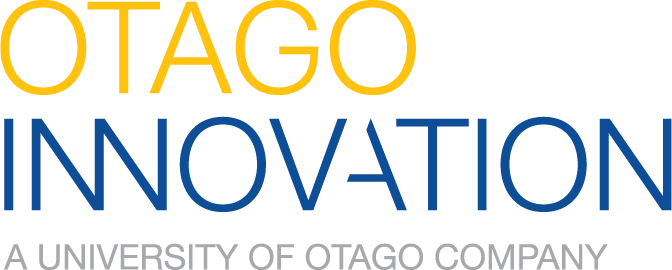
Dr Michel Nieuwoudt - University of Auckland & Luminoma Ltd
Making light work of hard problems
Throughout her career, Dr Michel Nieuwoudt’s breakthroughs in the field of vibrational spectroscopy have directly benefited many organisations, from Fonterra to the Auckland Art Gallery. Now she’s lighting a new path in skin cancer diagnostics.
Michel is a highly accomplished scientist turned entrepreneur, who uses her expertise in light-matter to solve critical problems – from revolutionising skin cancer diagnosis, to evaluating tissue oxygenation during surgery, authenticating art, determining the detailed composition of milk, and beyond.
Luminoma Diagnostics, Ltd. is a Photon Factory spinout co-founded by Michel in 2023, which is solving a major problem in skin diagnostics – creating an accurate and easy way to diagnose skin cancers in seconds, without the need for biopsy.
Luminoma has raised over $5M in investment, and Michel now leads a major international R&D effort to commercialise Luminoma’s game-changing technologies, already in-demand by hospitals in the US and Australia. With a prestigious Hercus Fellowship, Michel and her colleagues at Auckland Hospital are also exploring options for detecting critical tissue oxygenation during surgery.
Michel leads by example, known for making the insurmountable seem easy and always raising up those around her. She is a sought-after mentor, acting as both a Principal Investigator for the Dodd Walls Centre and Associate Investigator for the MacDiarmid Institute.
Michel is a shining example of an exemplary researcher entrepreneur, bringing together creativity in solving important problems with excellent technical and people skills to deliver real impact across many industries.

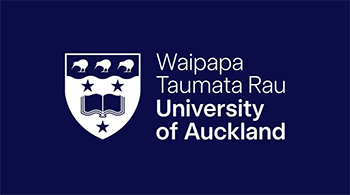



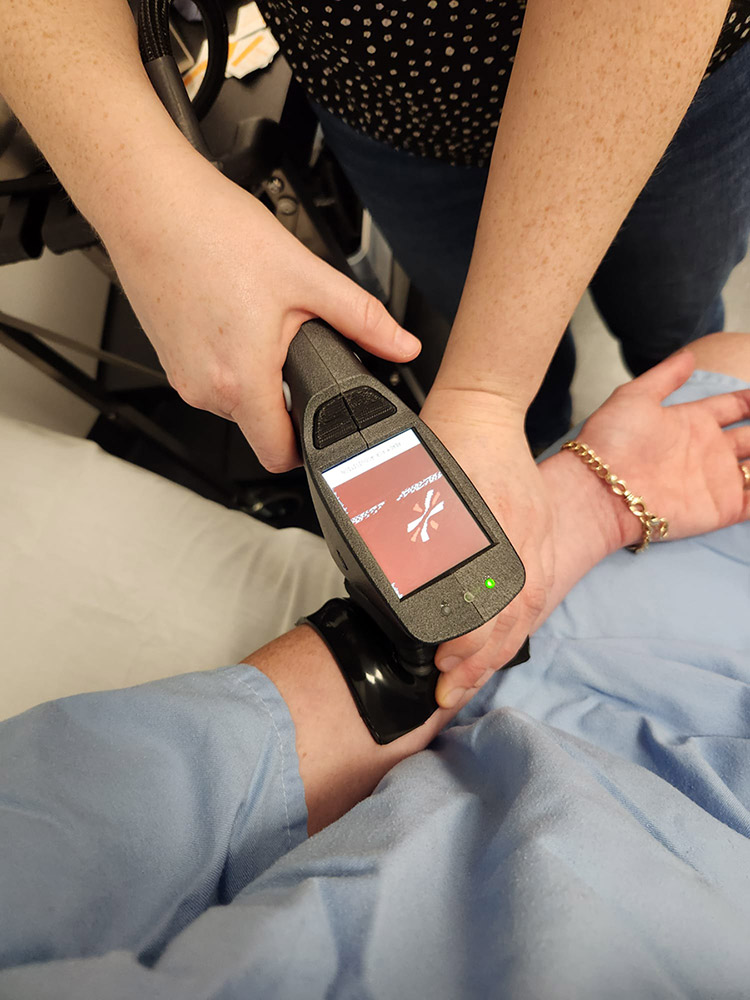
Professor Aaron Marshall - University of Canterbury and MacDiarmid Institute
An inspiring visionary in clean-tech innovation
Professor Aaron Marshall is an internationally recognised electrochemist, co-founder of clean-tech start-ups, and champion of commercialisation. He is leaving a legacy of breakthrough research and real-world solutions that tackle urgent global challenges.
As co-founder of Zincovery, a University of Canterbury spin-out launched in 2020, Aaron is helping to revolutionise global metals recovery – taking waste from steel manufacturing to produce zinc more sustainably.
Aaron was instrumental in pivoting the technology to meet market demands and identifying critical IP. In 2024, Zincovery closed a major investment round and has secured over NZ$500M in offtake agreements, paving the way for its first demonstration plant in New Zealand.
In 2023 Aaron co-founded Ternary, an on-demand, zero-emission hydrogen energy system for the transport sector. Through Aaron’s leadership and networks, the technology scaled from lab bench to full-size industrial stacks in under a year.
Ternary has rapidly expanded, now employing a core team of 17 engineers and scientists. In addition, they contract researchers across five international and national institutes, bringing cutting-edge expertise to their development programme. This growth reflects the strong global interest in their technology and their commitment to accelerating innovation through a world-class team.
While he has secured over $25M in university research funding and earned 4000+ citations, Aaron’s legacy lies in his championing of commercialisation and his mentorship of the next generation, leading to a culture of innovation across the University of Canterbury, MacDiarmid Institute, and the wider CPN ecosystem.
Aaron is a pioneer of the clean-tech industry, putting New Zealand on the map for sustainable technologies and inspiring entrepreneurs across the country.




KCA Commercialisation Professional Finalists
This award recognises a commercialisation professional working within a New Zealand research organisation who has made an outstanding contribution to the commercialisation of publicly-funded research.
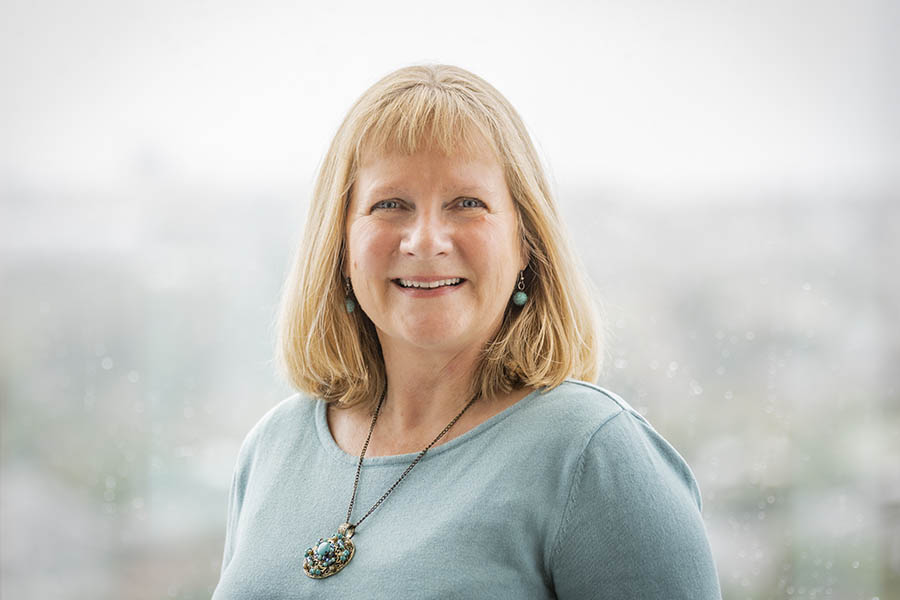 Sue Muggleston
Sue Muggleston
Plant & Food Research / Bioeconomy Science Institute
A legacy of IP excellence and growing future leaders
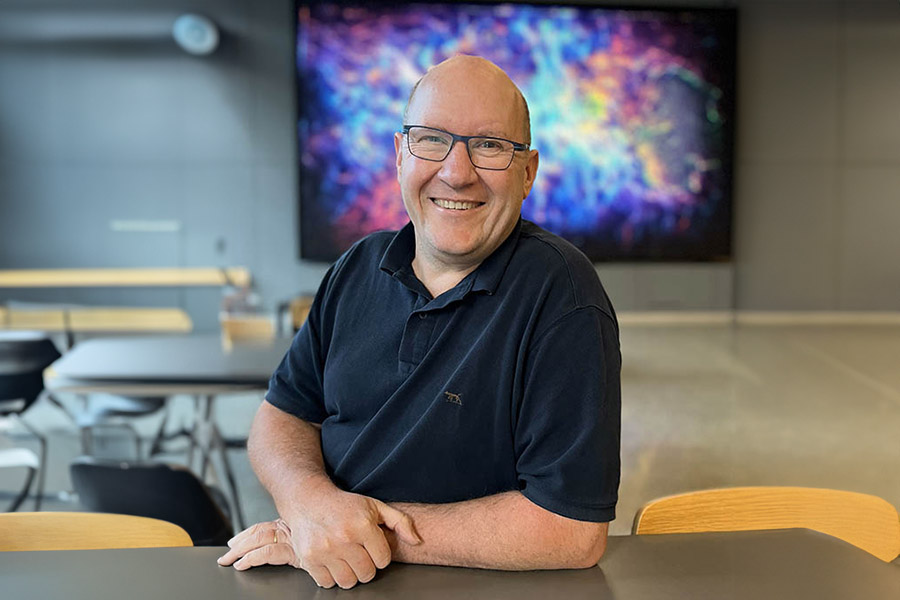 Arron Judson
Arron Judson
Symply and New Zealand College of Chiropractic
Building capability, not just companies
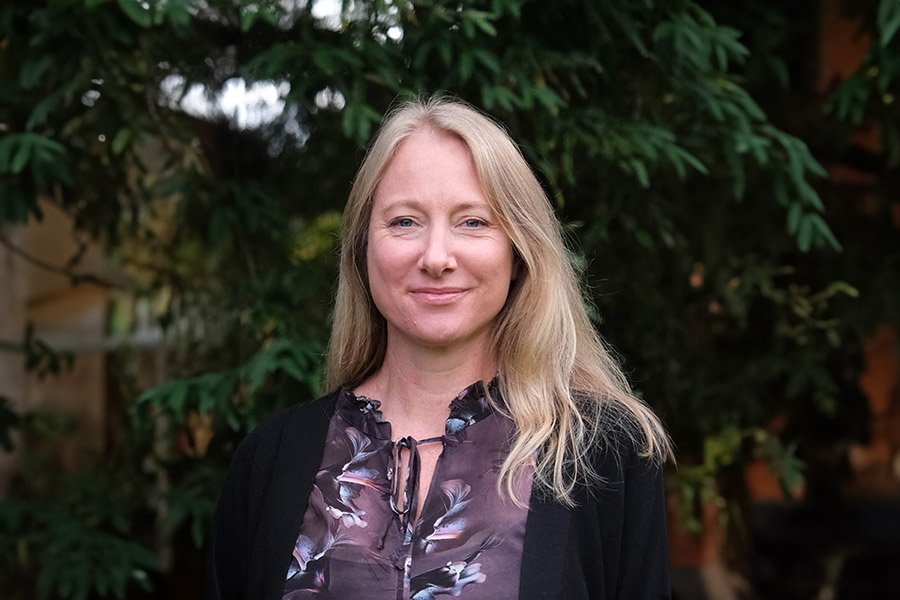 Amanda Davies
Amanda Davies
Bioeconomy Science Institute
Forging pathways to turn science into impact
Sue Muggleston - Plant & Food Research/Bioeconomy Science Institute
A legacy of IP excellence and growing future leaders
Sue Muggleston was a driving force behind commercialisation at Plant & Food Research and its predecessors for more than 40 years – leaving a legacy that’s transformed how the organisation protects and unlocks the value of intellectual property.
Since becoming Intellectual Property Manager at Plant & Food Research in 2000, Sue has played a central role in developing the organisation’s IP systems, resources and capability, putting IP at the heart of their innovation efforts. Her work has transformed company culture, making IP a core part of how researchers think and operate.
Sue supported business cases for PreSeed Accelerator Fund projects totalling $3.35 million over the past decade and assisted deal teams with in-licensing and out-licensing diverse technologies. At every stage, she championed the importance of protecting IP – leading training initiatives and working closely with staff to make sure great ideas have the best chance of making it to market.
Sue’s passion for growing people has had a lasting impact. She developed Bioeconomy Science Institute’s in-house Core Business Skills programme, helping more than 150 staff gain business skills and deepen their understanding of science commercialisation. Many programme graduates – and others she has personally mentored – have gone on to senior roles in startups, science, industry and investment, both in Aotearoa and internationally.
Sue’s influence reaches far beyond Bioeconomy Science Institute. She is widely regarded as an IP thought leader, with nearly 25 years of involvement in the Licensing Executives Society, and as a long-standing supporter within the University of Auckland’s Master of Bioscience Enterprise and Master of Commercialisation and Entrepreneurship programmes.
Sue recently retired from Plant & Food Research, now part of the Bioeconomy Science Institute, marking the end of an era – but her impact continues. Her open, collaborative approach and commitment to sharing knowledge have created ripple effects that will be felt for years to come.



Arron Judson - Symply and New Zealand College of Chiropractic
Building capability, not just companies
A serial commercialisation entrepreneur, Arron Judson has spent over two decades driving transformation in New Zealand’s research commercialisation sector with a focus on long-term outcomes over short-term gains.
Across his career, Arron Judson has supported more than 25 new ventures. As co-founder of Astrolab, he advised and invested in over 14 early-stage companies, including Moxion – a groundbreaking film production platform acquired by Autodesk in 2022 – and cleantech leader Aquafortus, which has raised over $30 million.
In 2023, he co-founded Goodair, a nosebud respiratory device which launched earlier this year, and more recently co-founded Symply, a wearable healthtech platform designed to measure stress, recovery, and resilience. He also led the commercialisation of three new technologies from the NZ College of Chiropractic.
However, Arron’s impact extends well beyond individual businesses. He is a sought-after mentor and advisor, contributing his expertise to the Return on Science ICT Investment Committee, the KiwiNet Investment Committee and Emerging Innovator Programme, and the University of Auckland’s Velocity program. As General Manager of Marketing and Partnerships at Bioeconomy Science Institute, he led the Ōhanga Āmiomio event, New Zealand’s first Circular BioEconomy gathering, bringing together iwi, government, and global partners to advance sustainable innovation. Today, he continues to support the NZ College of Chiropractic in unlocking the commercial potential of its research.
Through a consistent focus on capability and connection, Arron has built an enduring legacy. His influence is evident in the growing number of collaborators and alumni now occupying key roles across New Zealand’s innovation ecosystem. The ventures he has helped shape continue to generate tangible benefits for the country’s economy, environment, and communities – a lasting contribution from a leader deeply committed to impact.



Amanda Davies - Bioeconomy Science Institute
Forging pathways to turn science into impact
Amanda Davies is a strategic leader with a talent for turning science into meaningful commercial opportunities. As head of the Innovation Team at the Bioeconomy Science Institute, she’s built a strong culture of empowerment and impact – transforming how research is positioned for industry, investment and the market.
Combining scientific expertise with sharp business acumen, Amanda brings a best practice lens to everything she does. Her ability to negotiate win-win outcomes has been key to securing licensing deals, supporting spin-outs, and building trusted partnerships around a diverse range of technologies – including the Bioeconomy Science Institute’s wood fibre pellets, bioadhesives, seaweed nanocellulose, and textile recycling.
One standout example of Amanda’s strategic leadership was her role in scaling up technology developed by the Bioeconomy Science Institute to turn wood into a drop-in marine biofuel. Biowave, co-founded by Amanda, is a spin-out company from the institute, launched in August to move this technology onto an accelerated commercialisation pathway.
Amanda also invests heavily in growing capability. She created Impact Jumpstart, an internal programme designed to give researchers the tools and knowledge to engage in commercialisation. She has built a team culture grounded in trust, diversity and strategic commercialisation.
Beyond the Bioeconomy Science Institute, Amanda is a committed contributor to the wider innovation ecosystem. She is a CRI shareholder representative on the KiwiNet Board, has served on the KiwiNet Investment Committee, and is a former member of the Return on Science Physical Sciences Investment Committee. A strong advocate for inclusive leadership, she actively mentors others in the field – particularly women building careers in science and innovation.
Amanda continually leads with vision and purpose, helping bold ideas make their way from research to real-world impact.



PWC Breakthrough Project Finalists
This award recognises a project that demonstrates best practice commercialisation of publicly-funded research.
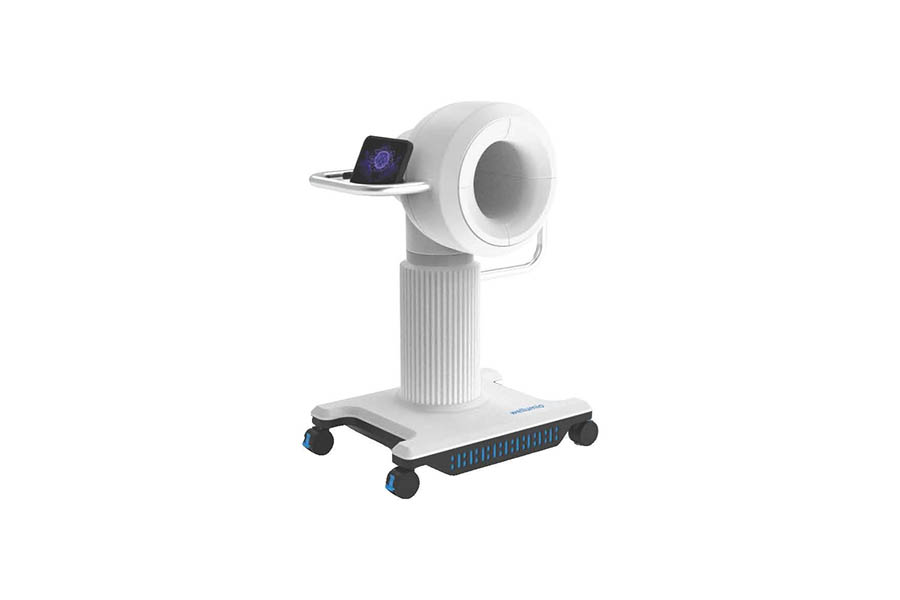 Wellumio
Wellumio
Wellington UniVentures
Lifesaving stroke imaging when every second counts
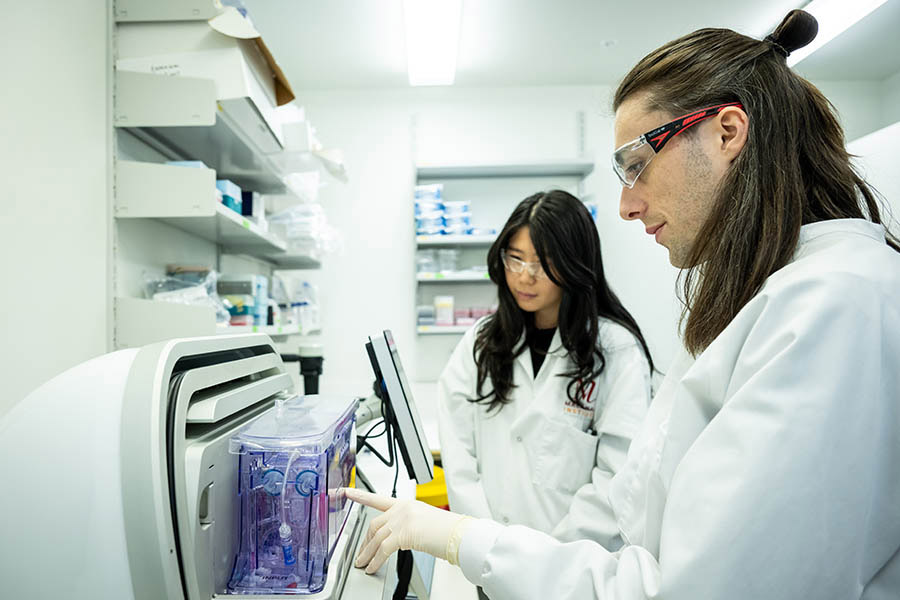 CAR-T Therapy
CAR-T Therapy
Malaghan Institute of Medical Research
Engineering the future of cancer care in New Zealand
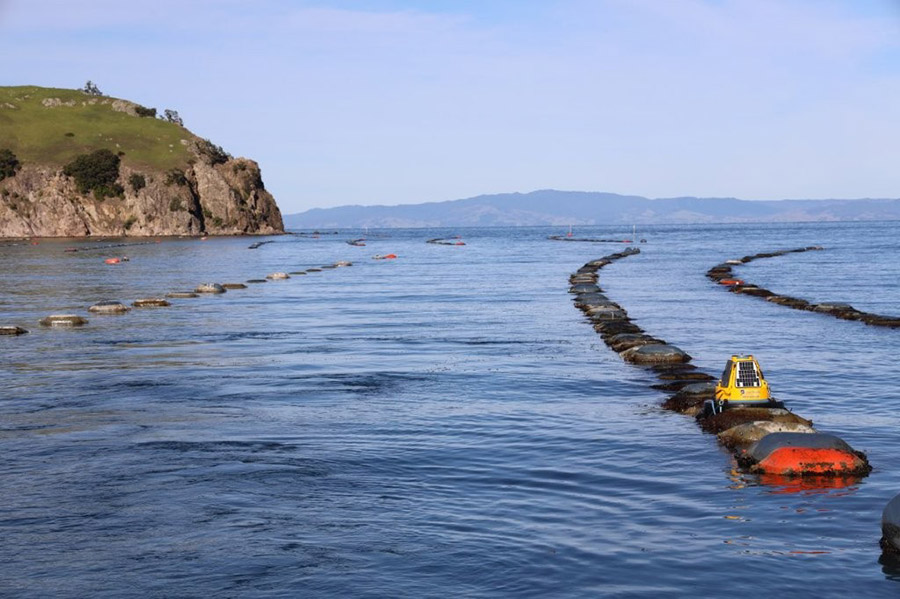 Ocean Intelligence
Ocean Intelligence
Cawthron Institute
Forecasting the future of marine farming
Wellumio - Wellington UniVentures
Lifesaving stroke imaging when every second counts
Wellumio’s breakthrough technology provides rapid, gold-standard stroke imaging directly at point of care. Whether in emergency departments, rural hospitals, ambulances, or mobile stroke units, Axana® transforms everyday clinical environments into advanced triage centres.
Wellumio was spun out of Victoria University of Wellington in 2019 by co-founders Dr. Shieak Tzeng and Dr. Sergei Obruchkov, following years of research into compact MR systems. The project benefited from Victoria University’s collaborative and pioneering magnetic resonance ecosystem, originally cultivated by Sir Paul Callaghan.
Developed by Wellumio, Axana® removes traditional MRI barriers by using Pulsed Gradient Free Mapping, a novel magnetic resonance technology. Unlike conventional MRI, which depends on heavy, complex infrastructure, Axana can be used in emergency settings and can detect key stroke biomarkers in under four minutes – with the potential to save 2 hours in stroke diagnosis and vastly improve patient outcomes.
Wellumio has forged strategic partnerships with leading institutions including the Australian Stroke Alliance, Royal Melbourne Hospital, and the Medtronic Neurovascular CoLab, and has raised over NZD $7 million to date. This includes a $4.25 million seed round led by Outset Ventures, Nuance Capital, NZGCP’s Aspire Fund, Cure Kids Ventures, and Movac.
At scale, the potential impact of Axana is vast – in the U.S. alone, with 800,000 ischemic strokes annually, Axana could generate $50-$60 billion in economic value each year by improving the length and quality of life for each patient, and reducing hospital stays, rehab time and long-term care needs. Wellumio is currently completing its first-in-human clinical trial at the Royal Melbourne Hospital and is actively progressing toward regulatory approvals and commercial launch in the U.S., Australia, and EU.
Wellumio is currently raising a pre-Series A round of NZD $8.5 million to complete product development and fund Phase 2 of its clinical trial, directly comparing Axana® against CT imaging in emergency departments. Successful completion of this trial will demonstrate Axana’s clinical superiority and accelerate regulatory clearance, paving the way for rapid commercial adoption and significantly improving stroke patient outcomes worldwide.




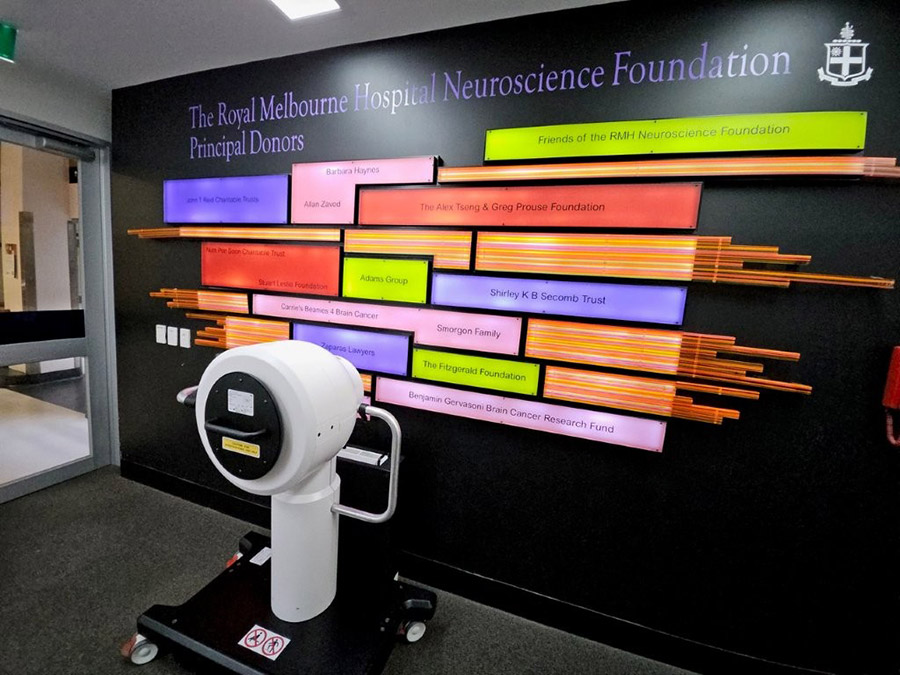
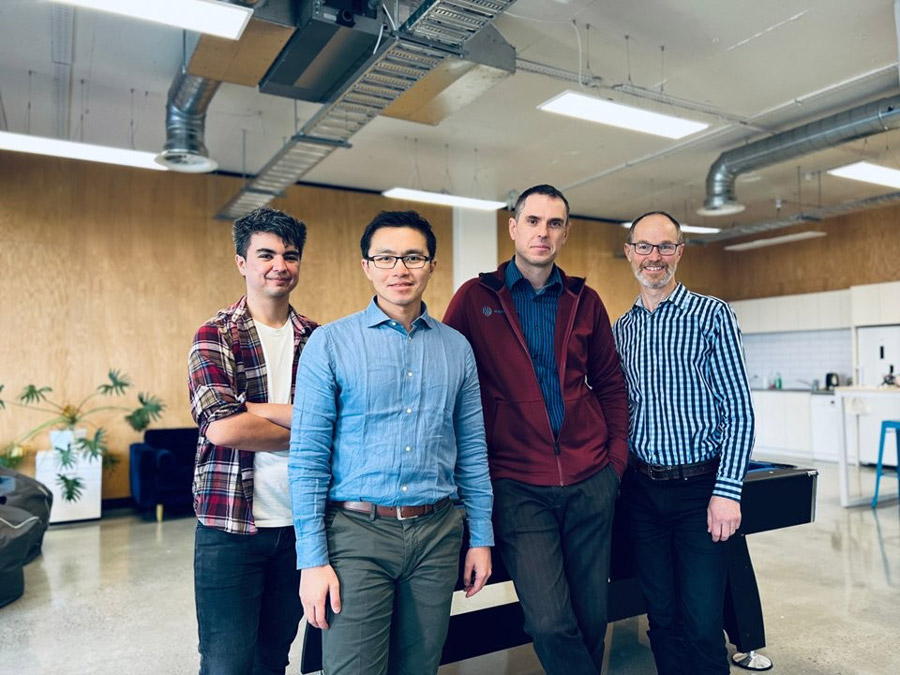
CAR-T Therapy – Malaghan Institute of Medical Research
Engineering the future of cancer care in New Zealand
Over 22,000 people are diagnosed with blood cancer each year in NZ and Australia, with more than 6,000 expected to lose their lives in 2025 alone. Recent breakthroughs in the Malaghan Institute’s novel cancer treatment, CAR-T therapy, are now unlocking new options for patients and global opportunities for New Zealand.
Chimeric Antigen Receptor T cell (CAR-T) therapies represent a powerful and personalised approach to treating cancer. They harness the patient’s own immune system to target and destroy cancer cells – offering hope where conventional treatments fall short. However, barriers such as high manufacturing costs and safety factors have made CAR-T therapies difficult to implement in New Zealand’s health system.
This led Clinical Director Dr Rob Weinkove, Deputy Director Professor Ian Hermans, and General Manager Mike Zablocki to form an international partnership to develop a viable CAR-T programme tailored to local needs.
What followed was a commercialisation process years in the making and involving many ‘firsts’ for New Zealand. This included leveraging a world-class collaboration with Chinese partners to establish Wellington Zhaotai Therapies Ltd, creating a GMP-compliant manufacturing process and licensing a local manufacturing facility, setting up all regulatory and clinical trial infrastructure from scratch, and bringing together a multidisciplinary network of scientists, clinicians, and business development and regulatory experts.
In 2023, the Phase I ENABLE trial was successfully completed in New Zealand, unlocking over NZ$10 million in private investment for a Phase II trial, attracting international attention, and leading to the creation of BioOra in 2024, a Bridgewest Ventures–backed biotech startup focused on automating CAR-T manufacturing.
With Phase II trials underway, Malaghan Institute’s CAR-T product is now on the cusp of an even bigger breakthrough: being delivered to the public as a viable and accessible treatment option, and positioning New Zealand as a global leader in next-generation medicine.


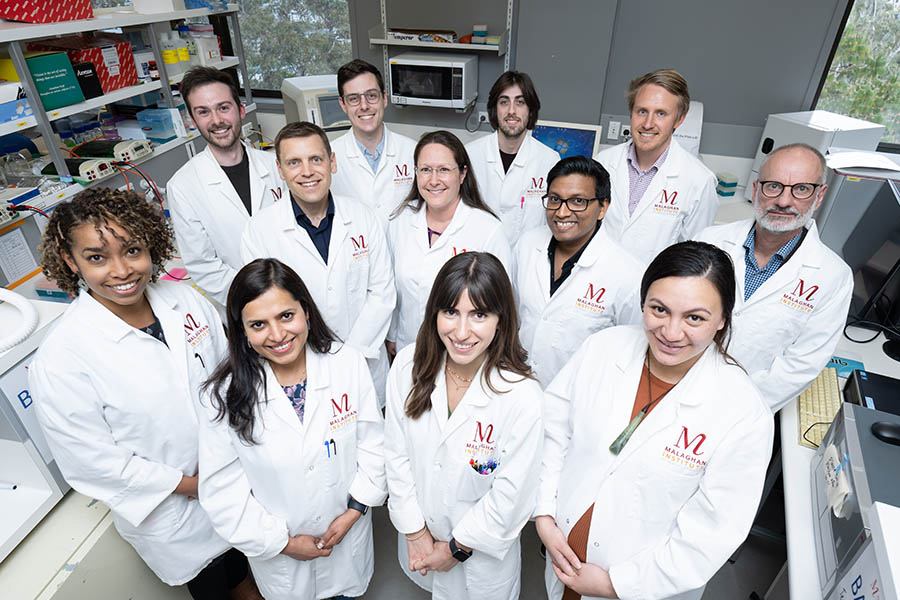
Ocean Intelligence - Cawthron Institute
Forecasting the future of marine farming
Ocean Intelligence is the first-ever commercial spin-out from Cawthron Institute in its 100-year history, transforming more than two decades of aquaculture research into a globally scalable SaaS platform and delivering real-time intelligence to marine farmers.
This next-generation biological forecasting platform, developed in partnership with Oceanum and powered by machine learning, turns complex data into actionable tools for marine farmers. It can forecast environmental risks like harmful algal blooms, spat survival, and storm impacts, to enable precision aquaculture at scale.
At its core is the Oceanum Datamesh, a powerful engine that integrates over 5,000 environmental datasets, advanced current and wave modelling, satellite feeds, and on-farm sensor and lab results.
But transforming IP into impact required more than data and science - it required an innovative path to market. The team forged key partnerships and accelerated commercialisation through strategic support and targeted investment, including early-stage investment from Ocean Impact Organisation (Australia). Rather than licensing the science, the team took the leap to build their own modular SaaS platform to serve as a global gateway for aquaculture IP from all New Zealand research organisations, creating a New Zealand aquaculture solution for the world.
Ocean Intelligence is a landmark project for Cawthron and represents a bold shift for the organisation. It demonstrates how deep institutional IP can be leveraged for real-world outcomes and has served as an internal catalyst to build momentum for future ventures.
Now expanding across Aotearoa, Ocean Intelligence is preparing for international growth, with plans to expand into Australia and Chile - one of the world’s largest aquaculture markets. The platform not only tackles a $40M problem caused by rapidly changing and unpredictable environmental conditions in the New Zealand aquaculture industry but also sets a precedent for how Cawthron IP can fuel fast-growing, globally relevant ventures.



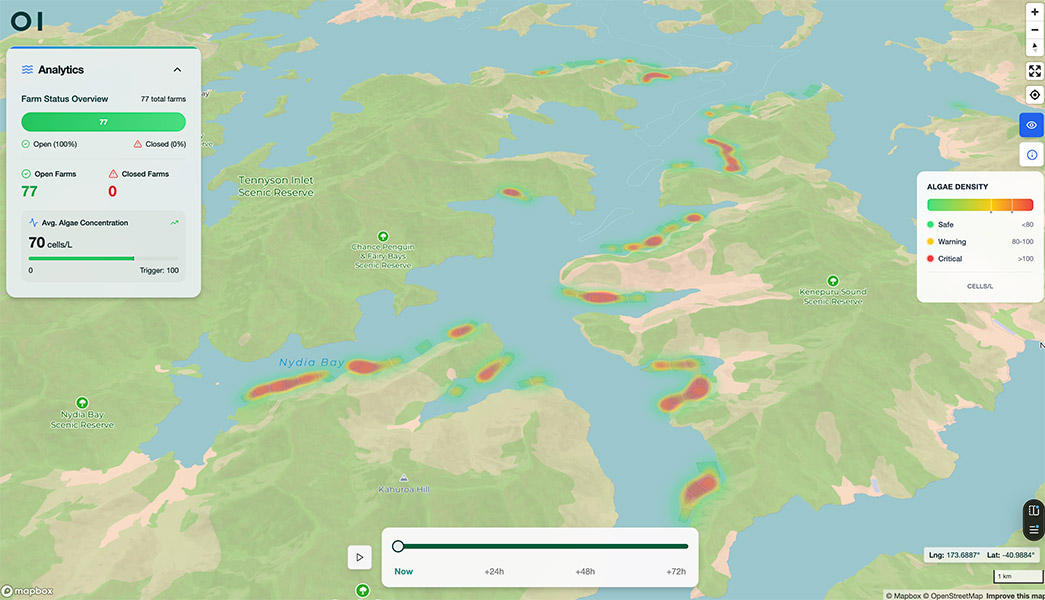
AJ Park Commercialisation Impact Finalists
The commercialisation impact award celebrates excellence in research commercialisation delivering outstanding innovation performance and the potential for generating significant economic impact for New Zealand.
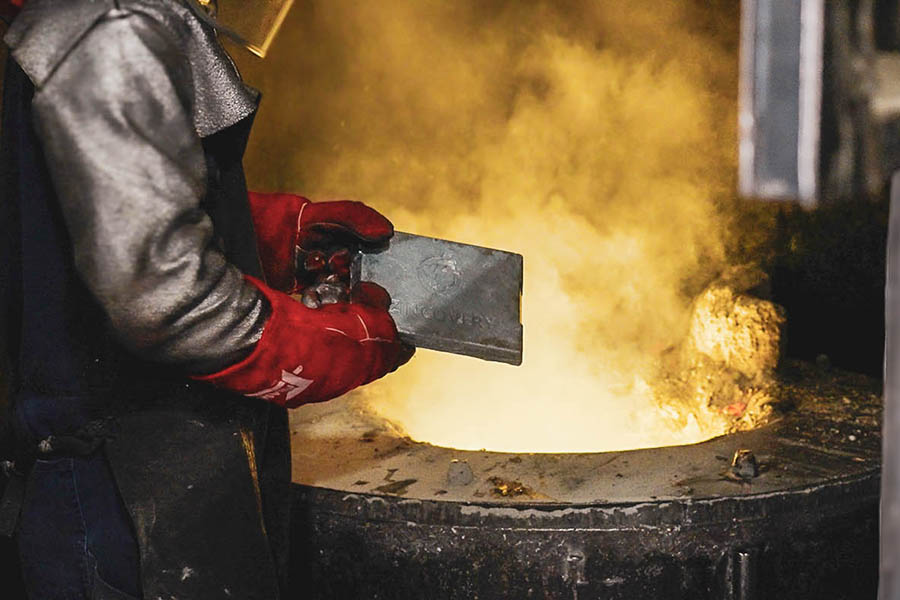 Zincovery
Zincovery
University of Canterbury
Leading the future of clean metal refining
 Potato Innovation ‘Crop 78’
Potato Innovation ‘Crop 78’
Bioeconomy Science Institute
A sustainable French fry future
 Nectaron®
Nectaron®
Bioeconomy Science Institute
Next-generation flavours brewing global success
Zincovery - University of Canterbury
Leading the future of clean metal refining
Zinc is the fourth most-used metal in the world, with around US$10 billion in zinc dust created each year from the steel recycling industry. Currently, only about 50% of it is recovered in a costly process with a high carbon footprint. Zincovery’s groundbreaking technology is set to transform the global metal refining market by recovering zinc and other critical metals at half the cost and with up to 95% lower emissions.
Founded in 2021 by Jonathan Ring and Professor Aaron Marshall out of the University of Canterbury (UC), Zincovery’s technology combines protected innovations across metals reduction and electrochemistry, with the potential to mitigate over 1 billion tonnes of CO₂ from critical minerals refining.
Zincovery has raised NZ$20 million in funding, and deployed this to achieve several major milestones, including signing commercial agreements worth over NZ$500 million, building a fully functional pilot plant with 10 tonne-per-year zinc capacity, and beginning works on a 1,000 tonne-per-year demonstration facility in Christchurch – the largest of its kind in NZ.
The company also shines as an example of a successful university spin-out, built on a strong and ongoing partnership. UC played a pivotal role in supporting the technology’s commercialisation and securing its intellectual property, laying the groundwork for long-term success. Today, Zincovery continues to operate its lab and pilot plant from UC facilities, actively collaborates with UC academics and students, and has assembled a high-performing team of researchers and engineers—many of whom are UC graduates.
Zincovery is on the path to reach US$1 billion revenue in the next 10 years and is fast emerging as a global leader in clean tech and resource recovery.




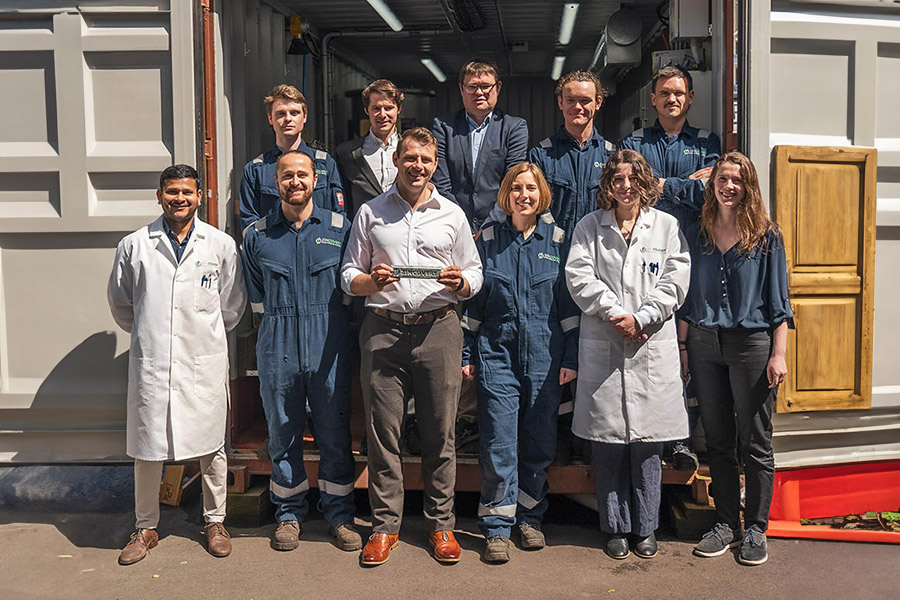
Potato Innovation ‘Crop 78’ - Bioeconomy Science Institute
A sustainable French fry future
A stand-out potato variety developed by the Bioeconomy Science Institute that produces higher yields with less environmental impact, is challenging the status-quo of the global French fry market.
Russet Burbank has become the gold standard for French fries in fast food chains globally. But despite its cooking quality it has considerable drawbacks, and there has long been the need for more sustainable potato varieties that can deliver to the exacting standards of the global French fry market.
Bioeconomy Science Institute have done just that. ‘Crop78’ is a new potato variety with excellent cooking quality that is outperforming the others - consistently delivering high yields, strong disease resistance, efficient water use, and resilience to cold-induced sweetening that negatively impacts performance. It has proven to deliver 36% higher yield with half the standard nitrogen inputs. This is a significant environmental saving that is creating major benefits for the industry.
‘Crop78’ is now in commercial production in New Zealand and advancing rapidly towards international uptake.
Currently used by Balle Bros Group Ltd – the company behind New Zealand’s leading Mr Chips brand – ‘Crop78’ already accounts for 11% of their French fry supply and is quickly scaling. Mr Chips produces over 35,000 tonnes of potato products each year for both domestic and export markets.
International expansion is also underway with Simplot, a pioneer of the frozen French fry with large-scale processing facilities worldwide. After eight years of trials, Simplot has approved ‘Crop78’ for commercialisation in Australia, where it processes over 300,000 tonnes of potatoes annually.
Other major milestones, including being approved for use by a major global fast-food chain, mean that ‘Crop78’ is set to shake-up the global French fry supply chain and deliver a more sustainable future for the world’s favourite chip.

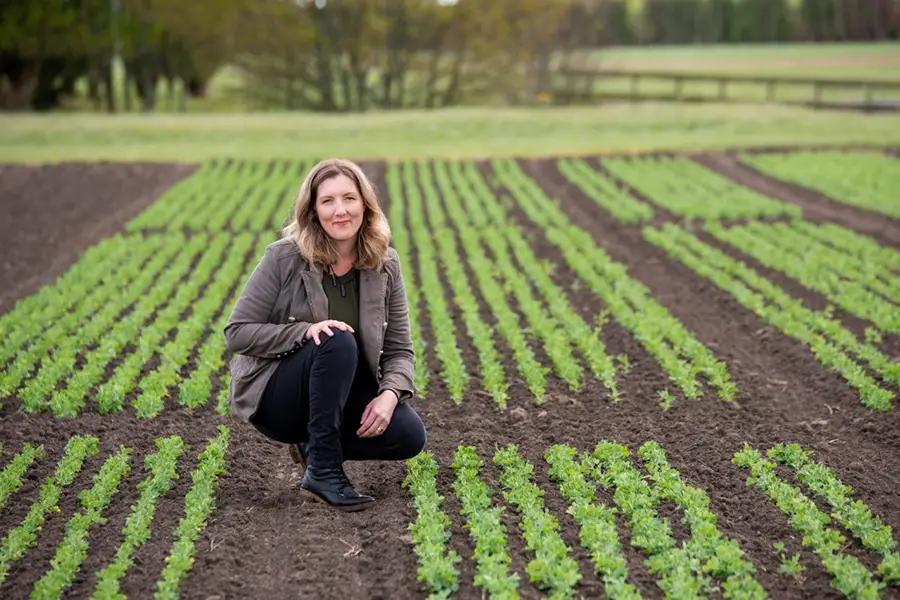

Nectaron® - Bioeconomy Science Institute
Next-generation flavours brewing global success
The hop cultivar Nectaron® has set a new standard for aromatic hops in the brewing industry, becoming an instant success in the USA, the world’s largest hop market. Demand is growing rapidly – just a year after its release, it was ranked the fifth most desired hop by US brewers.
Brewing is a fast-moving consumer-driven industry, with brewers and beer drinkers always looking for something new. To maintain New Zealand’s reputation for unique and high-quality hop varieties, our hop industry must continually innovate and stay ahead of global trends.
In 2020, NZ Hops Ltd launched the Bioeconomy Science Institute-bred cultivar ‘Hort4337’ under the brand name Nectaron®, bringing a whole new flavour profile of full, tropical notes to the market. Bioeconomy Science Institute and NZ Hops Ltd also signed a 10-year collaborative breeding agreement with significant investment, focusing on the commercialisation of new cultivars with unique flavours and aromas.
Key to the Nectaron® innovation has been a new pilot brewing process within the breeding programme, which allows early assessment of the brewing characteristics of hops at the single bine stage and means distinctive hop cultivars can be more easily discovered.
Demand for Nectaron® grows every year. Just five years after release, more than 180 hectares of the hops are currently planted in New Zealand with an estimated production of around 300 tonnes per year. A 2021 Brewers Association member survey ranked Nectaron® as the fifth most-wanted hop of the year globally, and sales have reached over $3 million per season and are expected to grow around 10% per annum.



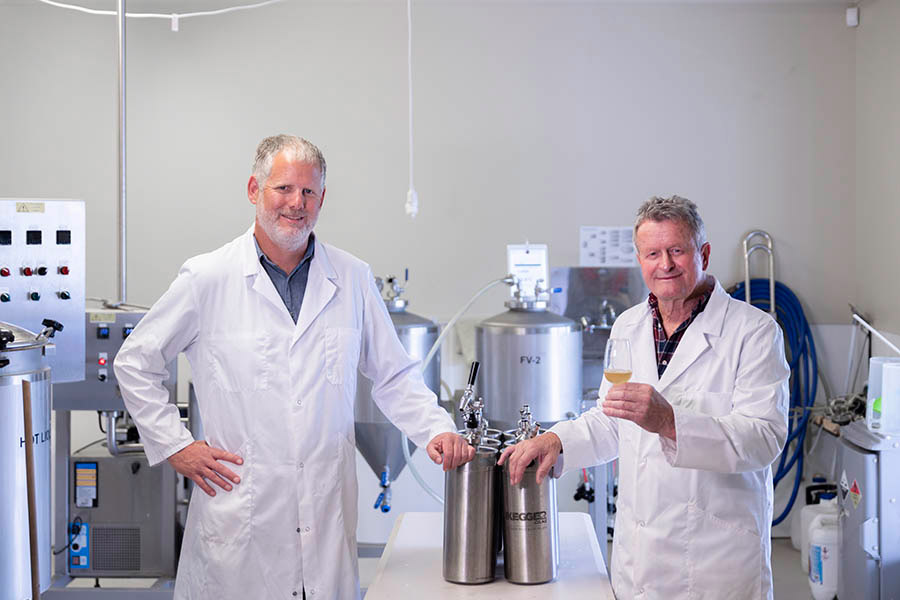
Kerry Templeton, hop breeder (L) and Dr Ron Beatson, Honorary Fellow and previously hop breeder at the Bioeconomy Science Institute and NZ Hops Brand Ambassador
Momentum Student Entrepreneur Finalists
This award recognises a highly motivated university student who looks beyond the science and sees the prize - how their idea can change the world. The student is making outstanding contributions to business innovation or has created innovative businesses in New Zealand through technology licencing, start-up creation or by providing expertise to support business innovation.
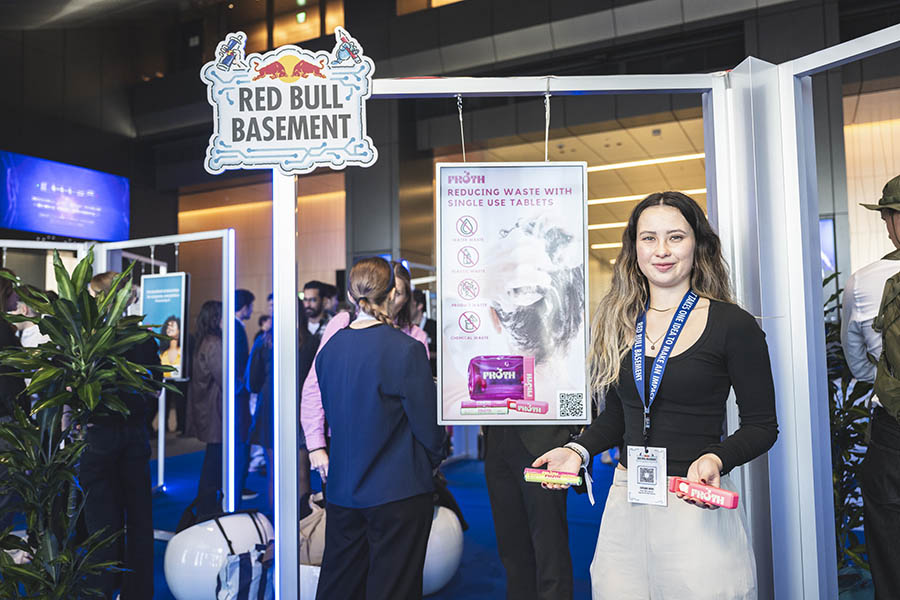 Emmalee Abbott Joe
Emmalee Abbott Joe
FROTH/ Te Whare Wānanga o Waitaha | University of Canterbury
Making travel more sustainable, one haircare tablet at a time
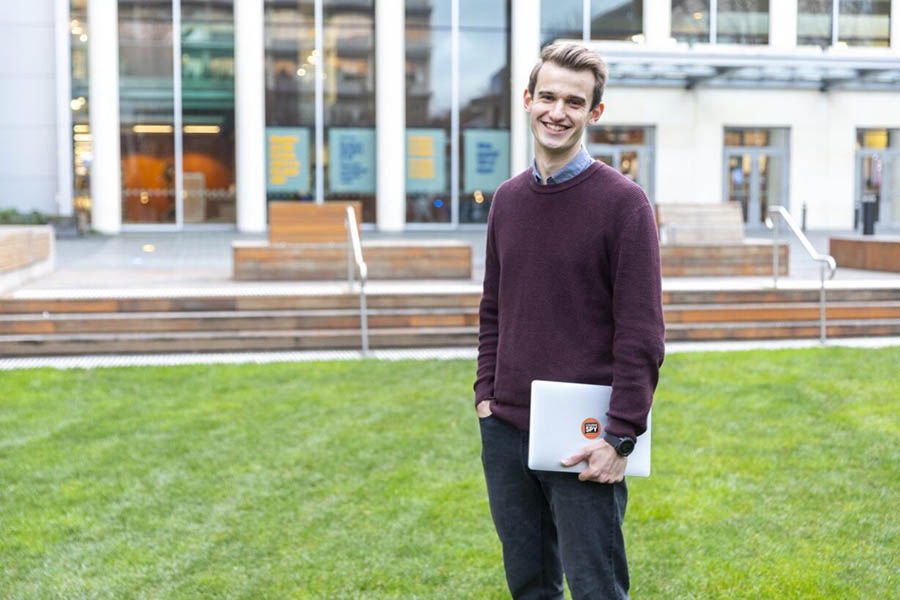 Josiah Bugden
Josiah Bugden
CourseSpy/ University of Otago – Ōtākou Whakaihu Waka
Creating transparency in higher education
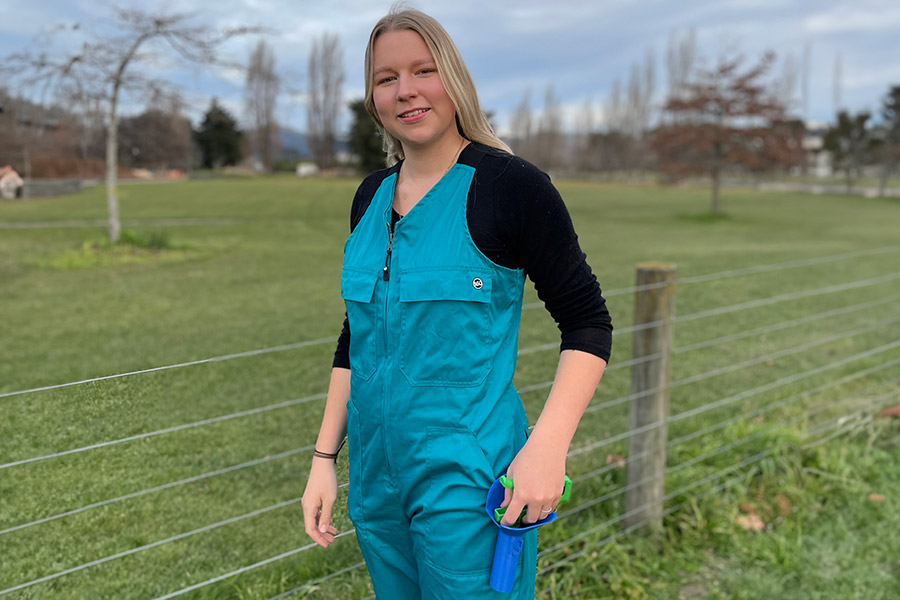 Jade Luxton
Jade Luxton
Steerineedle/ Te Whare Wānanga o Waitaha | University of Canterbury
The holster revolutionising livestock vaccinations
Emmalee Abbott Joe: FROTH/ Te Whare Wānanga o Waitaha | University of Canterbury
Making travel more sustainable, one haircare tablet at a time
Emmalee Abbott Joe is studying chemical formulation design and marketing at the University of Canterbury (UC), and is the founder of FROTH, a game-changing haircare product designed to help travellers and the hotel industry live a little lighter.
During a marketing internship in Malaysia, Emmalee was struck by the environmental impact and impracticality of single-use toiletry bottles – over 2 million of these plastic bottles from hotels end up in landfill annually.
Determined to create a better solution, she drew inspiration from the science behind laundry sheets to develop dissolvable shampoo and conditioner tablets.
After early iterations and refinements, Emmalee created FROTH – a line of innovative, single-use haircare tablets made with biodegradable, coconut-derived surfactants. Compact and lightweight, these tablets offer a convenient and sustainable alternative to traditional products, while reducing waste at every stage of the product lifecycle. Emmalee has single-handedly led the research and development of FROTH, successfully completing quality, stability, and consumer testing. She is now engaged in discussions around manufacturing and funding, and is progressing towards the commercial launch of FROTH’s first product range, supported by key industry mentors.
Her innovation and leadership have earned her multiple accolades, including reaching the Top 10 at the Red Bull Basement Global Finals in Tokyo, competing against 40 countries, and receiving the Christchurch Foundation Women Entrepreneurs Grant.
Beyond her invention, Emmalee is a passionate advocate for female founders. She actively contributes to the entrepreneurial ecosystem through speaking engagements and mentorship, and has served on the executive committee of Entre, UC’s student entrepreneurship club with over 400 members. Emmalee is not just building a product – she’s shaping a more sustainable, empowered future for both the planet and the next generation of innovators.




Josiah Bugden: CourseSpy/ University of Otago – Ōtākou Whakaihu Waka
Creating transparency in higher education
What began as a side-project for student founder Josiah Bugden has evolved into a platform with over 200,000 visits, helping students to make better and more informed decisions about their university study.
Josiah is a medical student and founder of CourseSpy.com, a rapidly growing platform helping students navigate university life with confidence. Frustrated by a lack of clarity when trying to choose his university papers, understand degree requirements, and access quality course advice, Josiah set out to build the all-in-one tool he wished he had.
CourseSpy now hosts over 15,000 course reviews across all eight New Zealand universities and has helped students plan more than 700 degrees. CourseSpy empowers students to make informed decisions through peer-shared advice, planning tools, and increased transparency in higher education.
CourseSpy has evolved to be more than a review site. It allows students to plan their degrees, calculate entrance scores, manage timetables, choose accommodation, and access curated study resources - removing the administrative burden so they can focus on learning. Josiah's goal is to continue scaling CourseSpy by adding tutors, textbooks, and further developing modules for CourseSpy's proprietary learning platform, while looking to expand overseas in the near future.
Despite starting with no coding or business experience, Josiah has shown a true entrepreneur spirit, learning along the way through trial and error. Over the past year, Josiah has worked closely with universities, student associations, and fellow students to build a platform that meets their needs.
Josiah is passionate about building tools that make a real difference and supporting others in the startup space, with a goal to set a new standard for student support worldwide.




Jade Luxton: Steerineedle/ Te Whare Wānanga o Waitaha | University of Canterbury
The holster revolutionising livestock vaccinations
Jade Luxton was still in high school when she came up with the idea for Steerineedle, a product tackling a critical issue in the agriculture industry. Now a third-year Product Design student at the University of Canterbury (UC), Jade is on a mission to benefit farmers, improve animal health, and inspire the next wave of young innovators.
Growing up in Waikato gave Jade a deep connection to the agriculture sector. Then, while working on a school project to solve a real-world farming problem she identified a major gap in livestock vaccination practices – a challenge affecting thousands of farmers across New Zealand.
Over 8,000 livestock die annually from infections caused largely by unclean needles, costing the industry $12 million. With 85% of farmers not changing needles between animals and 80% of abscesses linked to dirty needles, the problem leads to animal rejection at meat works, affecting both welfare and profit.
From this discovery, Jade developed Steerineedle – a portable holster that sterilises needles in seconds. It reduces disease spread, lowers vet costs, and saves time – cutting 2.5 hours off vaccinating a 300-strong herd. Unlike costly, wasteful single-use needles, Steerineedle is a practical, sustainable alternative that makes it easier for farmers to protect their livestock.
Jade’s work has earned national recognition, including awards from the UC Summer Startup Programme and the Entre Club Enterprise Challenge, where she is also giving back as a mentor and champion for the next wave of student entrepreneurs. She was also highly commended in the Young Innovation category at the Fieldays Innovation Awards in 2022.
She’s built strong industry connections and is now running successful product trials across the country. With growing demand from farmers and interest from retailers, Steerineedle is positioned to become the next must-have product for better animal management in New Zealand.






